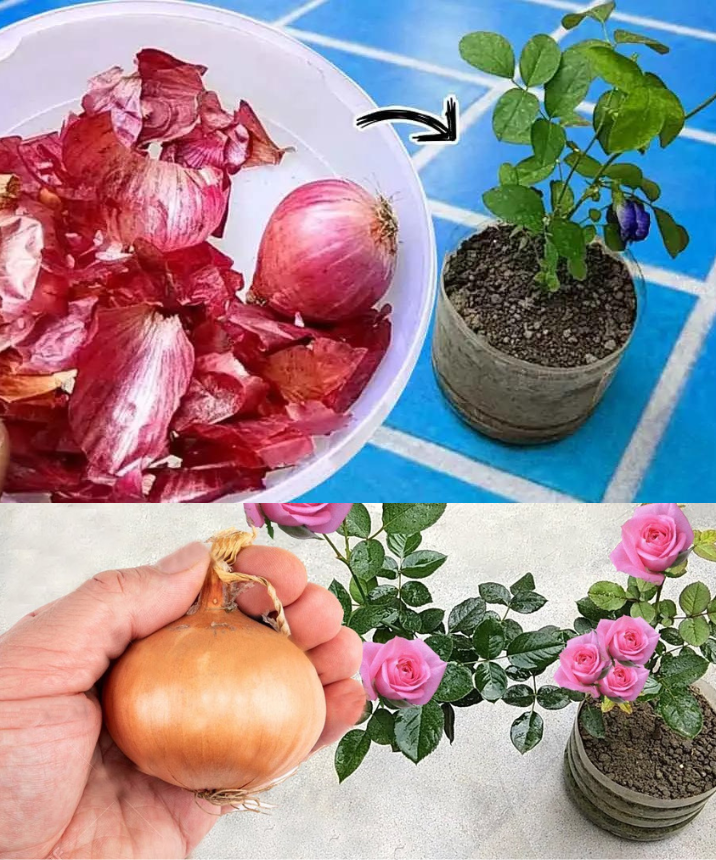Onion peels are often considered an excellent addition to garden plants, and this is due to several reasons. Here’s why experienced gardeners recommend using onion peels for your plants:
- Natural Fertilizer
Onion peels contain a significant amount of essential nutrients for plants, including potassium, calcium, and sulfur. When broken down in the soil, they slowly release these nutrients, acting as a natural fertilizer for your plants. - Pest Repellent
The sulfur compounds present in onion peels have repellent properties against many common garden pests, such as snails, slugs, and some harmful insects. Placing onion peels around your plants can help protect them from attacks by these pests. - Disease Prevention
Onion peels can also have antifungal and antibacterial properties, which can help prevent certain fungal and bacterial diseases that affect plants. By incorporating them into the soil or using them as mulch, you can contribute to maintaining the health of your plants. - Soil Structure Improvement
When broken down, onion peels add organic matter to the soil, improving its structure and texture. This promotes better water and nutrient retention, as well as improved air and root circulation, which is beneficial for plant growth. - Economical and Eco-Friendly
Using onion peels as soil amendments is an economical and eco-friendly method to feed and protect your plants. Instead of throwing them away, you can reuse them in your garden, reducing waste and promoting a more sustainable approach to agriculture.
In summary, onion peels are a valuable addition to the garden, offering a variety of benefits for plant health and growth. By strategically using them, you can improve soil fertility, protect your plants against pests and diseases, all while embracing a more environmentally friendly approach to gardening.
